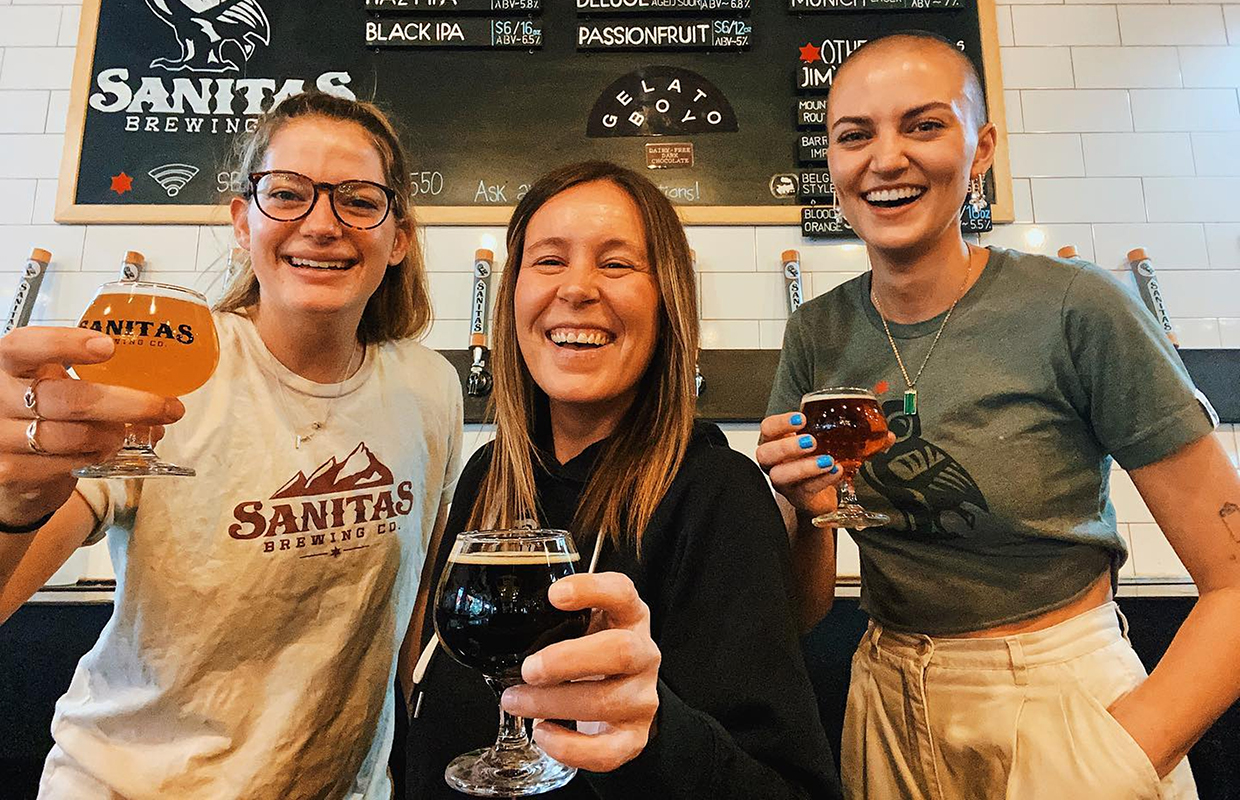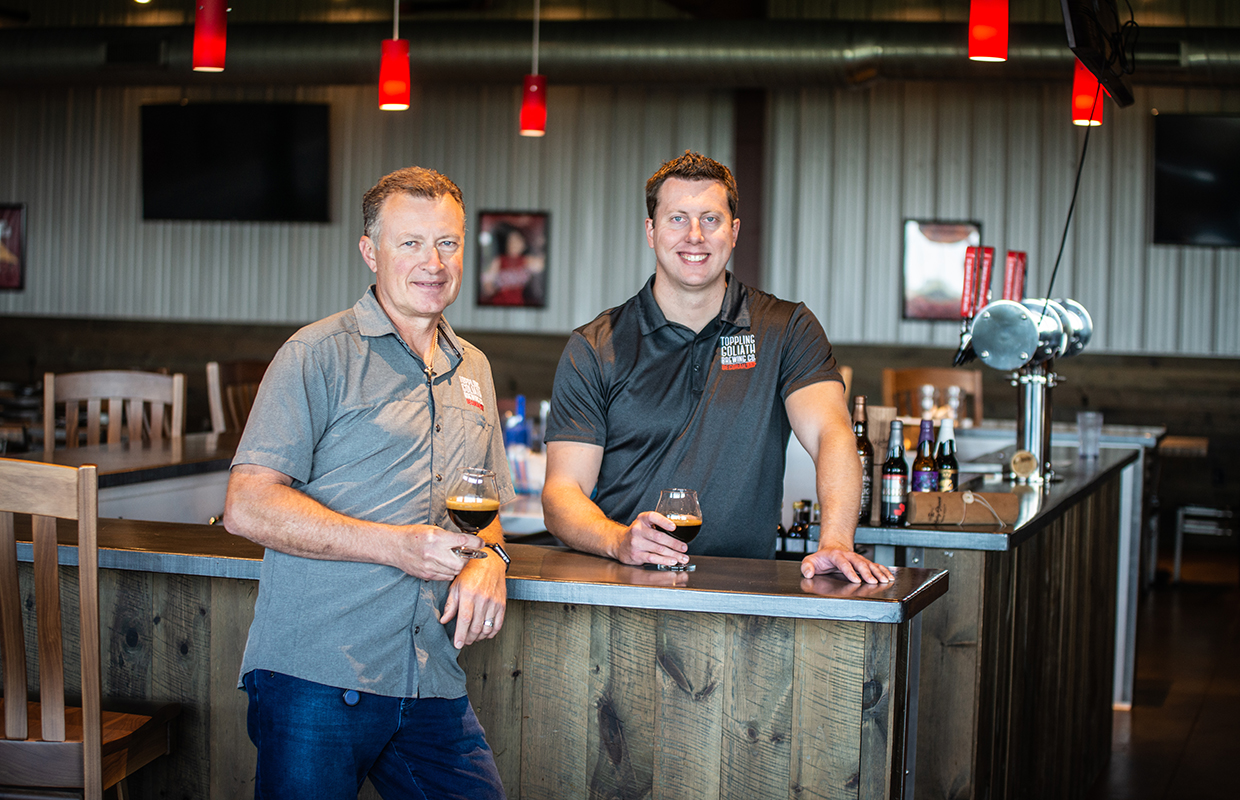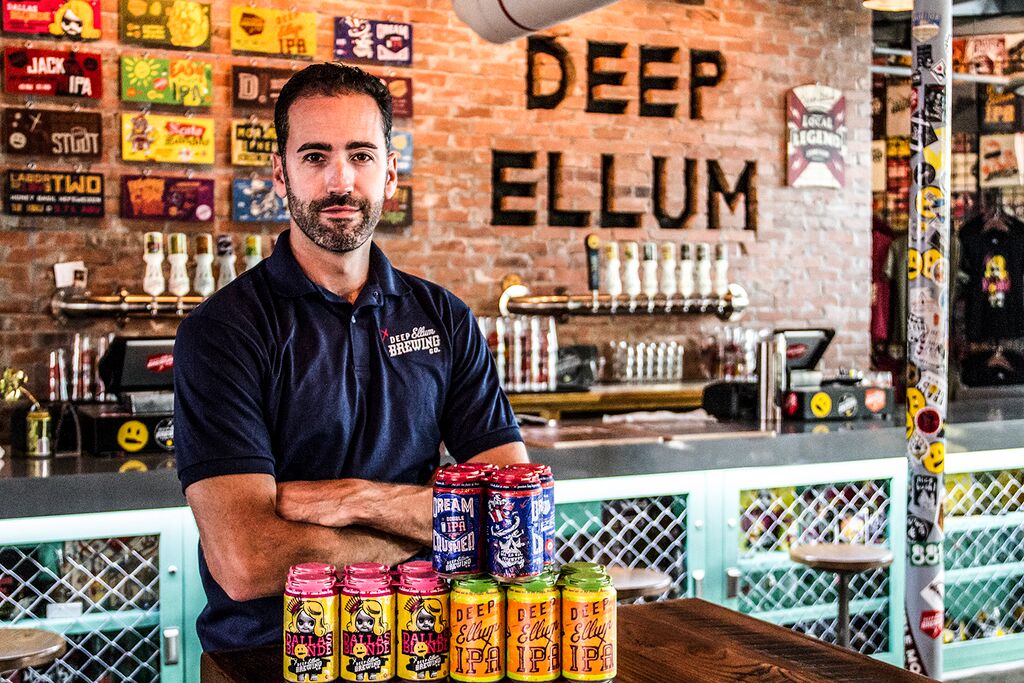
Diversity, Equity, and Inclusion — better known by the acronym DEI — has become an important topic of discussion as breweries have looked to make their hiring practices fairer, their workforce more diverse, and their taprooms safer for people of all genders and orientations.
Hiring with Fairness
Second Chance Beer co-founder and CEO Virginia Morrison had an ace in the hole when trying to shore up DEI hiring best practices at her brewery.
She said it’s probably the process at her brewery of which she’s the proudest.
“I’m a lawyer, and I used to practice employment law,” Morrison said. “I searched for an affordable solution to reduce unconscious bias and finding none, I developed my own.”
At Second Chance, applicants first apply for an opportunity via a role-specific Blind Survey.
“By ‘blind’ I mean we don’t ask name, education, or other identifying information,” Morrison said. “It’s significant to note the surveys focus on values, strength, skill sets, character, and handling of situations. When possible, we don’t ask about experience, which has been shown to result in fewer female, brown, and BIPOC applicants.”
If selected to advance, applicants are contacted via text, and the brewery requests an email to which the hiring manager can send further information. Applicants are asked to complete two surveys: DISC (personality test) and Self-Discovery Assessment. After completing those, if selected to advance, applicants are asked to complete the standard application and have the option to include a cover letter, resume, and references.
“Sometimes Steps 2 and 3 are collapsed, which usually happens when we’re severely understaffed,” Morrison said. “But, Step 1 is always blind, and our goal is to have Step 2 be as well.”
The new process has yielded some exceptional employees for Second Chance, Morrison said.
“Our team member, Kemet Ackee, is one of our valued employees and a young man I’m proud of — personally and professionally — and how he came to us early on in the recruitment process described above,” Morrison explained. “In addition to being an asset on our production team, two years in a row, SCBC and Kemet’s brand ‘All My Friends Are Rappers’ have collaborated on All I Want Hoppy Kolsch. In celebration of Black History Month, the goal of the collaboration [was] to attract more diverse people to craft beer.”
READ MORE: Ways to Think About Equity in Your Taproom
Making the Workplace and Taproom Safe for All
Sanitas Brewing Company has also bolstered its attention to DEI over the past couple of years, creating and launching a DEI committee in August 2021.
“With the rising issues surrounding diversity, equity, and inclusion we knew we wanted to be on the forefront of change,” Marketing Manager Jordan Harris said. “It was important to us that we include team members from every department across our company to speak to the things we encounter both internally, and externally with our customer base and within the craft beer industry as a whole.”
Sanitas has six active members on the team who meet monthly to discuss the brewery’s DEI initiatives.
“Whenever a new employee is hired, they are always welcome to join our DEI committee,” Harris said. “In 2022, we had a full review and rehaul of our employee handbook with the DEI committee to make sure we are reaching our inclusivity standards.”
Sanitas’ DEI committee started out by drafting internal and external surveys to get a better read on employee and customer expectations.
“We drafted two surveys and displayed signage in our taproom and back of the house that asked customers and employees a set group of questions that would help our committee gauge whether Sanitas is ‘a safe/inclusive space,’” Harris said. “From there, we had data to work with and issues to bring to the table for our committee to begin thinking about what initiatives we could take to do better.
“Our entire staff was then ‘Safe Bars’ trained as a result of these surveys and wanted to better inform our staff on how they could play an active part in making sure our taproom is a safe space for all.”
From that training, Sanitas launched a three-step program in the taproom with signage in all of our restrooms that give customers steps for when they are feeling unsafe.
“We have also really honed in on a partnership with Out Boulder County every Pride Month,” Harris said. “We brew a pride month beer with proceeds from this beer donated to the organization and a QR code on the can so consumers can learn more about the initiative. ‘Earl’s Out!’ Earl Grey Lemon Sour is set to brew and release again in May. Members from Out Boulder County will collaborate with us on packaging day and will be in the taproom with a table set up on release day.”
How DEI Makes Things Better
Harris said Sanitas had really worked DEI into the company’s culture.
“We pride ourselves on brewing ‘bring-you-together beer,’ and we wouldn’t be able to do that without being DEI-conscious. Before, something like gender-neutral bathrooms was seen as a challenge for our current taproom in Boulder since it would be an expense for us to redesign the current bathrooms,” she said. “When it comes to opening our new taproom in Englewood this summer, our DEI committee was able to voice their desires for these throughout the design and build process of this new taproom. That allowed us to prioritize creating this space in the early stages of our build plans.”
Morrison said “science and innumerable studies” had established that diverse groups make better decisions and companies with them are more successful.
“Craft beer’s historical reliance on white male fans has disadvantaged some breweries and resulted in damaged reputations and even professional careers,” Morrison said. “In part, it’s tragic, because I generally don’t believe people discriminate or harass out of malice. In both my legal and craft beer careers, my experience is people simply don’t know better and usually have not taken the time to educate themselves. But, controversies like the #metoo movement have made many in our industry wiser and more mindful about DEI matters. For every negative, there is a positive — at least with a mindset like mine.”
Harris said Second Chance’s commitment to inclusivity had made the team stronger, recruitment easier, and enabled her to positively impact the industry by co-chairing the Brewers Association’s DEI Committee.
With growth and change, challenges were inevitable but not insurmountable, she noted.
“At Second Chance Beer Company, our team is encouraged to make mistakes and learn from them,” she said. “I would love to see members of our industry do the same and practice compassion when people try DEI and get it wrong. Otherwise, I cannot see us continually improving. We innovate with beer by trial and error. It stands to reason that’s a way we become more inclusive, too.”






1 Trackback / Pingback